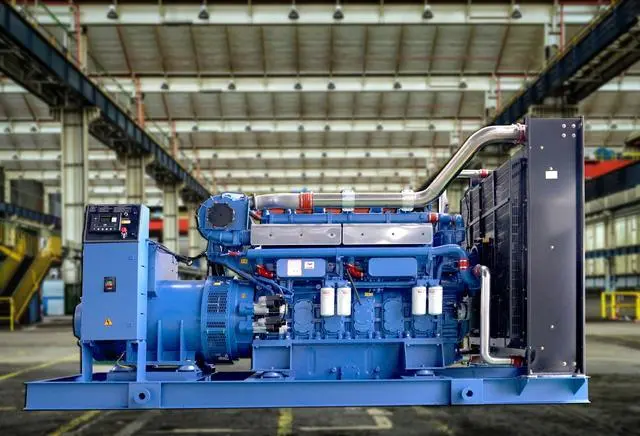Introduction
In the quest for sustainable and reliable energy sources, hybrid power systems have emerged as a promising solution. By combining multiple energy sources, such as renewable sources like solar and wind, with a backup generator like a diesel generator, hybrid power systems can offer a more stable and efficient power supply. In this article, we will explore the role of diesel generators in hybrid power systems, their benefits, challenges, and best practices for integrating them effectively.
Overview of Hybrid Power Systems
Hybrid power systems are designed to leverage the strengths of different energy sources to provide a more reliable and efficient power supply. By combining renewable energy sources with conventional generators, hybrid systems can overcome the limitations of individual energy sources and ensure continuous power availability. Common components of hybrid power systems include solar panels, wind turbines, batteries, and diesel generators.
While renewable energy sources like solar and wind are clean and sustainable, they are also intermittent and dependent on weather conditions. https://www.lkpowerplant.com/product/quick-delivery-emergency-standby-power-400kw-silent-type-diesel-generator-set-for-peru/ can lead to fluctuations in power output, making it challenging to maintain a stable power supply. Diesel generators, on the other hand, provide a reliable source of backup power that can be used to supplement renewable energy generation during periods of low output or high demand.
Benefits of Diesel Generators in Hybrid Power Systems
1. Reliable Backup Power: One of the primary advantages of diesel generators in hybrid power systems is their ability to provide reliable backup power. In the event of a sudden drop in renewable energy generation or unexpected power demand, diesel generators can quickly ramp up to meet the additional load and ensure continuity of power supply.
2. Fast Start-Up Time: Diesel generators have a fast start-up time compared to other backup power sources, such as gas turbines or fuel cells. This quick response time is crucial for maintaining system stability and preventing disruptions in power supply.
3. Fuel Flexibility: Diesel generators can run on a variety of fuels, including diesel, biodiesel, and even blends of diesel and renewable fuels. This flexibility allows operators to choose the most cost-effective and environmentally friendly fuel options based on their specific requirements.
4. Cost-Effective Operation: While the initial investment in a diesel generator may be higher than some renewable energy systems, diesel generators offer cost-effective operation and maintenance over their lifespan. With proper care and maintenance, diesel generators can provide reliable backup power for many years.
Challenges of Diesel Generators in Hybrid Power Systems
Despite their many benefits, diesel generators also pose some challenges when integrated into hybrid power systems. It is important to be aware of these challenges and take steps to mitigate them for optimal system performance.
1. Environmental Impact: Diesel generators are known for their emissions of pollutants such as nitrogen oxides (NOx), particulate matter, and carbon monoxide. These emissions can have a negative impact on air quality and contribute to climate change. To address this challenge, operators can invest in emission control technologies and use cleaner fuels to reduce the environmental impact of diesel generators.

2. Fuel Storage and Logistics: Diesel generators require a constant supply of fuel to operate, which can present logistical challenges in remote or off-grid locations. Ensuring a reliable fuel supply and proper storage facilities is essential to prevent interruptions in power supply.
3. Noise and Vibration: Diesel generators are known for their noise and vibration levels, which can be disruptive in residential or sensitive environments. Proper placement and soundproofing measures can help mitigate these issues and minimize the impact on surrounding areas.
Best Practices for Integrating Diesel Generators in Hybrid Power Systems
To maximize the benefits of diesel generators in hybrid power systems and overcome the associated challenges, it is important to follow best practices for integration and operation. Here are some key strategies to consider:
1. System Design and Sizing: When designing a hybrid power system, it is essential to carefully size the diesel generator to meet the peak power demand of the system. Oversizing the generator can lead to inefficiencies and increased operating costs, while undersizing can result in power shortages during peak demand periods.
2. Load Management and Optimization: Implementing smart load management strategies can help optimize the use of renewable energy sources and minimize the reliance on diesel generators. By prioritizing energy-efficient appliances and scheduling high-energy tasks during periods of high renewable energy generation, operators can reduce the need for backup power.
3. Maintenance and Monitoring: Regular maintenance and monitoring of diesel generators are crucial to ensure reliable operation and prevent unexpected failures. Implementing a maintenance schedule, conducting regular inspections, and monitoring performance metrics can help identify potential issues early and avoid costly downtime.
4. Emission Control Technologies: To reduce the environmental impact of diesel generators, operators can invest in emission control technologies such as exhaust gas scrubbers, diesel particulate filters, and selective catalytic reduction systems. These technologies can help reduce emissions of harmful pollutants and ensure compliance with environmental regulations.
5. Fuel Management: Proper fuel management practices, such as regular fuel testing, storage tank maintenance, and fuel quality monitoring, are essential to ensure the reliable operation of diesel generators. Operators should also consider using cleaner fuels like biodiesel or renewable diesel to reduce emissions and minimize environmental impact.
Conclusion
Diesel generators play a crucial role in enhancing the reliability and efficiency of hybrid power systems by providing a reliable source of backup power. While diesel generators offer many benefits, including reliable backup power, fast start-up time, and fuel flexibility, they also pose challenges such as environmental impact, fuel storage, and noise levels. By following best practices for integration and operation, operators can maximize the benefits of diesel generators in hybrid power systems and ensure a stable and sustainable power supply for various applications.
